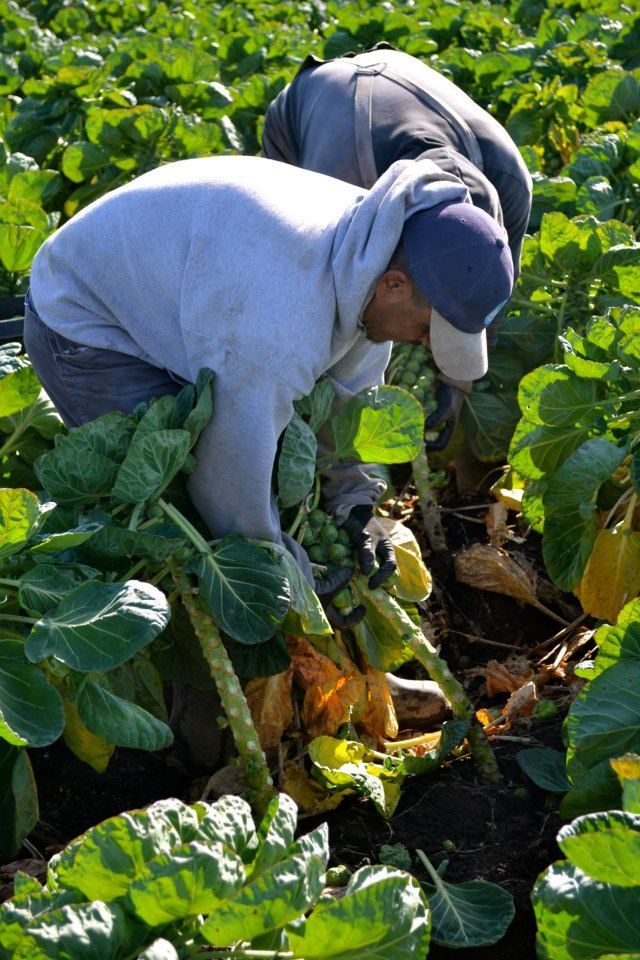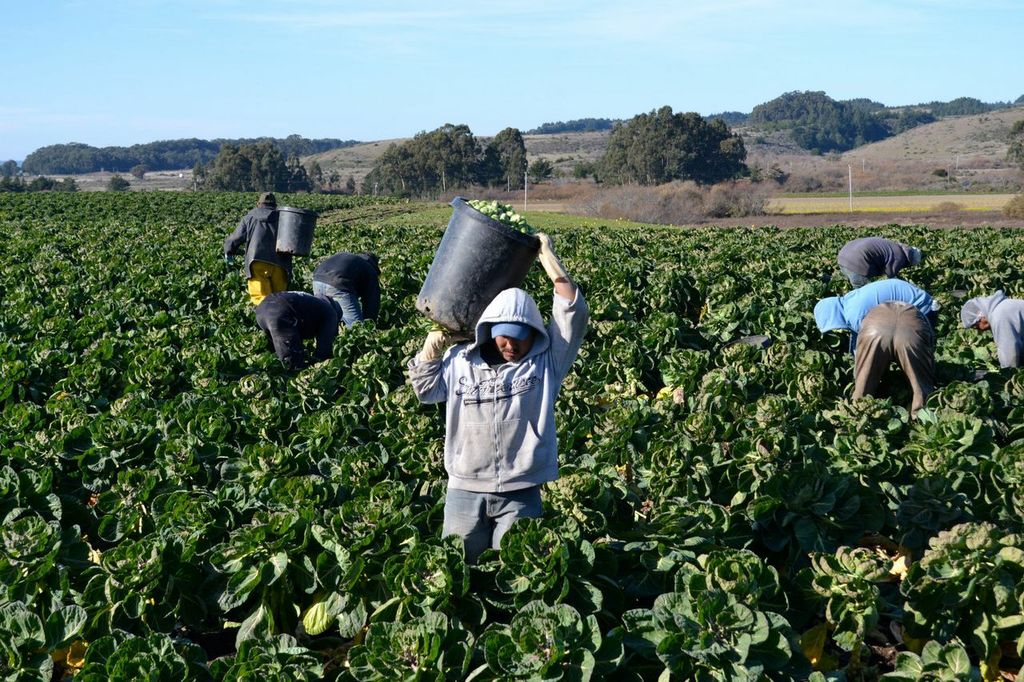When Pedro first arrived to the United States in 1983, he worked picking tomatoes in fields near Chula Vista, California. In those days, conditions for farm workers were different and Pedro lived for months, along with other farm workers, on the banks of a creek under a roof made out of a blue tarp, often in harsh weather. This was the first of many work trips to this country.
Why did he leave Mexico?
Pedro is originally from the Mexican State called Guanajuato. He saw no future in agriculture and began work sewing in a nearby town. He tried many jobs in Mexico including laying pipeline near Guatemala. When he got married he realized he couldn’t provide for his family and came back to the United States, this time near Fresno. Pedro was picking olives, oranges, and grapes, among other crops. Like many farm workers in those years, he followed the harvest. This time, he was living in a car.
On one of his last trips, he arrived in Pescadero, California because some friends and brothers-in-law lived here. That year, he learned that an amnesty had passed and that he qualified to get a work permit. For several years, he’d go to Mexico to visit his family for a few months and come back to work the rest of the year. “I was also sending money home every time I got paid. I was always very responsible with my family duties,” Pedro says.
“The life of farm workers is the hardest job and the worst-paid.”
Pedro witnessed many hardships during his life as a farm worker: farm workers got dehydrated and simply collapsed in the fields, job sites lacked bathrooms, drinking water and rest times. One time, a girl fell from her place sleeping on a tractor from exhaustion. The tractor driver didn’t see her and she was killed.
“Things are way better now,” he adds. Pedro muses about Cesar Chavez and his contributions to that reality. “It made me feel joyful to know that he was out there advocating for us.”

A better life, with big trade-offs
Eventually, Pedro became the night shift driver at the farm where he has labored for more than 10 years. Still, he often holds second jobs, as well. Pedro knows California’s agriculture is very important for the United States and the world but he says, “People buy produce and they have no idea about the hands that harvested it. I would like people to know how hard is to get the produce to their table.”
Pedro became a citizen about five years ago. However, he has not found a way to get legal residency for his wife, who lives here with him. “It is very depressing for her. I see her suffer, even cry, especially when there is a holiday in her native Mexico town and she cannot go and visit her family. Now, I can go and I take my daughters that were born here, but she has to stay behind every year.”
Immigration reform on the horizon?
The constant stress of living in the U.S. without documents is an issue that affects millions in our country. Among them are farm and agricultural workers who are doing jobs that the majority of Americans would never dream of doing.
“My family lives better now,” says Pedro. But, “I see the system as very broken.”
Pedro’s views are widely shared by farm and ranch owners, who are equally frustrated by how immigration laws stymie their labor needs.
A recent editorial by the California Farm Bureau Federation echoes Pedro’s assessment: “Sending roughly 1.3 million agricultural workers back to their home countries is not realistic and will only lead to labor supply shortages in farming.”
The latest comprehensive immigration reform bill advanced a step in late May, passing a crucial vote in the Senate Judiciary Committee. As it is currently written, the bill would offer provisional legal residency for current undocumented immigrants.
Pedro is watching the debate with great interest. For him, it all boils down to a few basic facts.
“Farmers need the labor force and most U.S. citizens will not take those jobs,” he says. “We need the jobs. That’s life.”
Originally published as part of a series of stories for National Farmworker Awareness Week. Names have been changed to protect the privacy of individuals.



